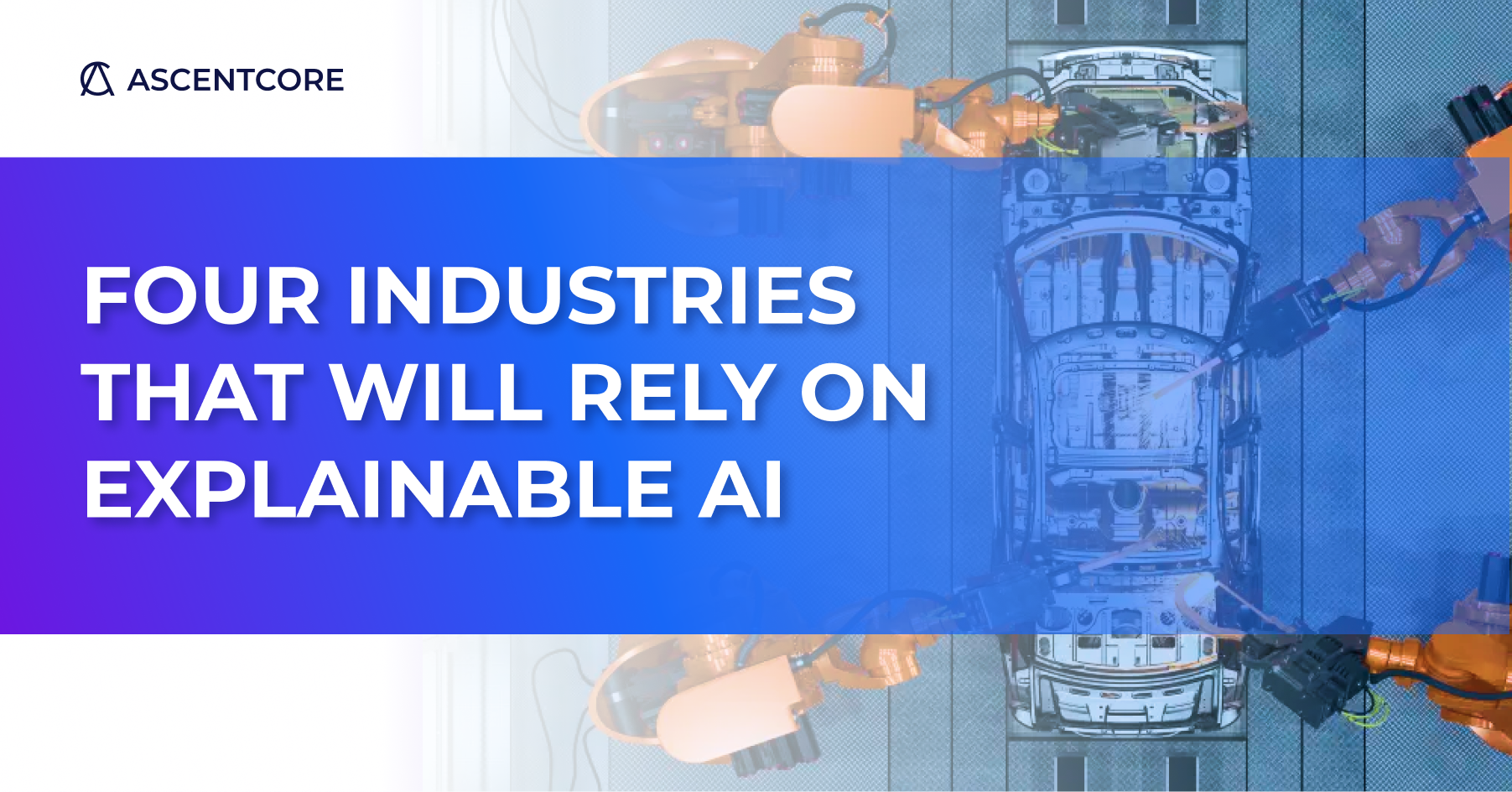Have you ever found yourself wondering how platforms such as Netflix or Spotify serve up their suggestions? Sometimes it’s like they’re reading your mind, but other times they seem way off. Whatever the result, it’s the AI algorithms of these platforms that determine what you see or hear based on your preferences and behavior. And while the consequences of whether or not they hit the target in this scenario are pretty minimal (after all, you can just skip the song or movie), this does raise the issue of if and how humans can understand the results of AI.
For higher stake situations, such as getting approved for a loan or interpreting healthcare results, understanding the decisions borne from AI technology is critical. That’s where explainable AI comes in. For situations that significantly impact human lives, a variety of stakeholders (e.g., customers, policymakers, and government agencies) will need to understand how these algorithms are developed, which means that businesses must incorporate explainability into their AI projects. Because not being able to explain an AI-based decision could open a business up to lawsuits, damage to its brand, or a financial hit.
While we predict that any business that’s leveraging AI will need to implement explainability, there are some industries in particular that will rely heavily on explainability.
Four Industries that Need Explainable AI
For some industries, decisions made by AI directly impact human lives, and have a possibility of bias in the process. In these situations, explainability is a must.
- Manufacturing. This is an industry that is increasingly automating tasks and processes and relying on AI to keep everything moving. It’s also an environment where traditionally, knowledge has lived among staff, which is problematic when there’s turnover. That knowledge may get lost if it’s not recorded and stored somewhere accessible. This means there’s an opportunity for AI-driven natural-language processing to help ensure knowledge is stored and also shared in an actionable fashion.
For example, if a company wants to update its repair guidance recommendations, it could turn to AI technology to optimize the process. In this case, a business can build in human interactions and safeguards to better ensure accurate results. The IBM Watson IoT, for example, gives users multiple options for recommendations, allowing for upvote and downvote options on each, to increase confidence in arriving at the best guideline. Additionally, each recommendation comes with a knowledge graph to help the user understand the parameters of why the result was prioritized and scored accordingly. - Healthcare. When dealing with the impact of AI decisions on a person’s health, few industries need explainability more than healthcare. This is also an industry where AI technology can be hugely beneficial. Machine learning, combined with explainable AI, could save medical staff a significant amount of time, allowing them to focus on the interpretive work of medicine and giving patients more of their time. When dealing with medical diagnoses, the nuance of human interpretation is often needed, and explainable AI allows medical staff to understand how a conclusion was reached. And if necessary, it offers the opportunity for a doctor or nurse to arrive at a different conclusion than the AI.
One real-world example allows physicians to use AI analytics to detect cancerous lesions more accurately. While the doctor plays a key role in identifying suspicious areas as cancerous or not, the AI acts as a virtual assistant, explaining each variable in an MRI image to the physician. - Self-driving cars. It goes without saying that when it comes to autonomous vehicles, human intervention is critical for ensuring a safe and compliant ride. And if the worst happens, such as an accident, understanding the decision of the AI will be paramount. For example, if a self-driving car finds itself in a position where an accident is unavoidable, what measures was it programmed to take? Does it prioritize the safety of passengers or of pedestrians? These aren’t easy questions to answer which means explainability is an absolute must.
Explainability would also give the automaker the opportunity to trace the data set and understand how the model went from one point to the next and ensure that it maps accurately to the values and principles the company holds. Additionally, customers can use this knowledge to decide if they want to rely on an autonomous vehicle that is programmed to make these decisions. While this scenario is ultimately about safety, it can also be a model for organizing and improving AI processes. - Insurance. Just like our other examples, insurance is a field where AI can be a game changer, but where trust and transparency are critical. Potential use cases for AI in the insurance industry include customer service and acquisition, claims processing, policy adjustment, and agent productivity. However, all of these areas have the potential for significant human impact, whether it’s a homeowner insurance claim, a person’s ability to access healthcare, or a worker’s compensation case. There’s also the added layer of compliance and regulations that this industry must adhere to.
When using AI, insurance companies would do well to ensure they can explain or answer questions such as:
– What data, models, and processing were applied to get this result?
– Can the AI explain how it got to this insight or result?
– Who accessed what and when? - -Can regulators access and understand how this AI works?
Explainable AI is Here to Stay
There’s no doubt that AI is changing the face of the world. The benefits can save businesses time and money and help them maximize their processes. And, as more industries embrace these benefits, explainability is going to be a must-have, not a nice-to-do. Ensuring that teams can go back, trace, and explain how AI reached a certain insight or conclusion may seem like a huge undertaking, but it’s an important milestone in improving the technology and increasing our trust and confidence in AI.
If you’re looking to leverage the power of AI, partner with the OG. We have AI/ML in our DNA and can help you build world-class digital products. Contact us today to learn more about how AscentCore is developing smart AI solutions to practical problems.



